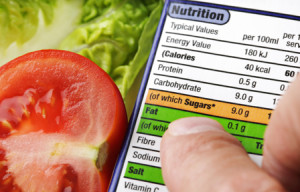Finding reliable nutrition information can be an overwhelming task. It appears as if there are an endless number of websites offering advice, tips, and links to even more resources. There are also a variety of health and fitness professionals providing recommendations on diet and nutrition. It can be hard to sort through all this information, but the following list is a great place to start for reliable nutrition information.
- Nutrition.gov: A government website that’s a great place to start as it provides a plethora of links on a variety of subjects from healthy nutrition and weight management to shopping, meal planning, and food assistance programs. Information is provided through a collaboration of experts from the U.S. Department of Agriculture (USDA), Department of Health and Human Services, Food and Nutrition Information Center, and the National Agricultural Library. Several of the resource links on this website are mentioned below.
- USDA National Nutrient Database for Standard Reference: This is the premier compilation of nutrient information for just about any food you can think of. It’s a searchable index of foods that provides detailed nutrient content information from calories and fat to vitamins and minerals. However, a more user-friendly website that pulls its information from the USDA’s Nutrient Database and is supplemented by restaurant and food manufacturers data is Nutrition Data. The nutrition facts label it provides can be very helpful in identifying key nutrients.
- Nutrition411: Formerly known as RD411, nutrition411 was founded by a Registered Dietitian and provides a lot of great advice for the general public as well as health professionals. Individuals looking for general food and nutrition topics should check out the Education Materials section. Some great topics include dining out and holiday eating, heart health, and information on food allergies and special diets.
- Myplate.gov: Developed by the USDA, myplate.gov provides easy to read information and recommendations for each food group as well as weight management and physical activity advice. It also includes a food and physical activity tracker that helps you plan and analyze meals and physical activity.
- Office of Dietary Supplements: Developed by the National Institutes of Health (NIH), the Office of Dietary Supplements (ODS) is one of the best online resources to learn about dietary supplements. The dietary supplements fact sheets contain well researched information – such as uses, side effects, and recommended intakes – on vitamins, minerals, and other dietary supplements, such as botanicals.
- Registered Dietitians: Registered dietitians or RD’s are trained experts in the field of food and nutrition who have met academic and professional requirements. They are an integral part of the medical care team in the treatment and prevention of diseases. They work closely with individuals and their physicians to identify nutrition-related problems as well provide the knowledge and support to lead a healthy life. Find a Registered dietitian in your area by clicking here.

